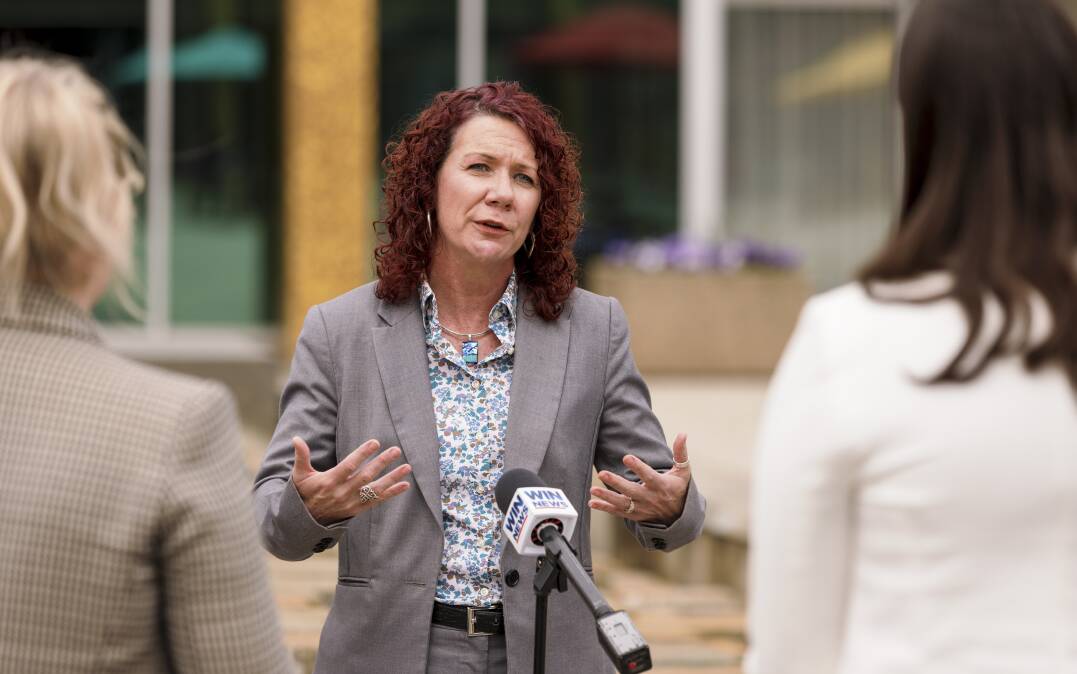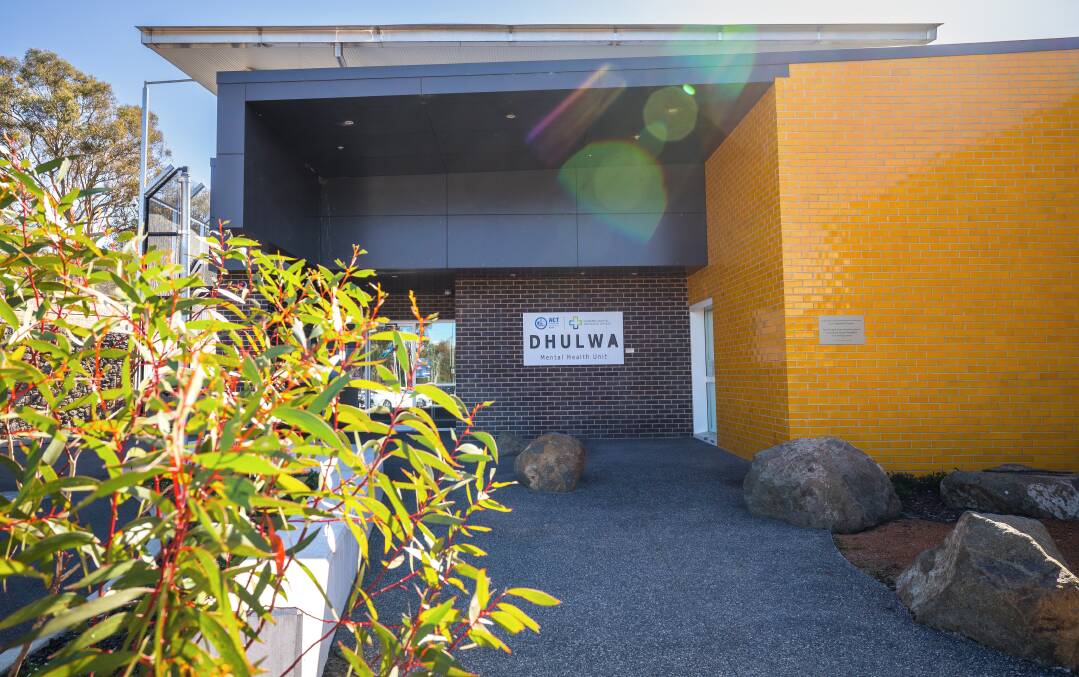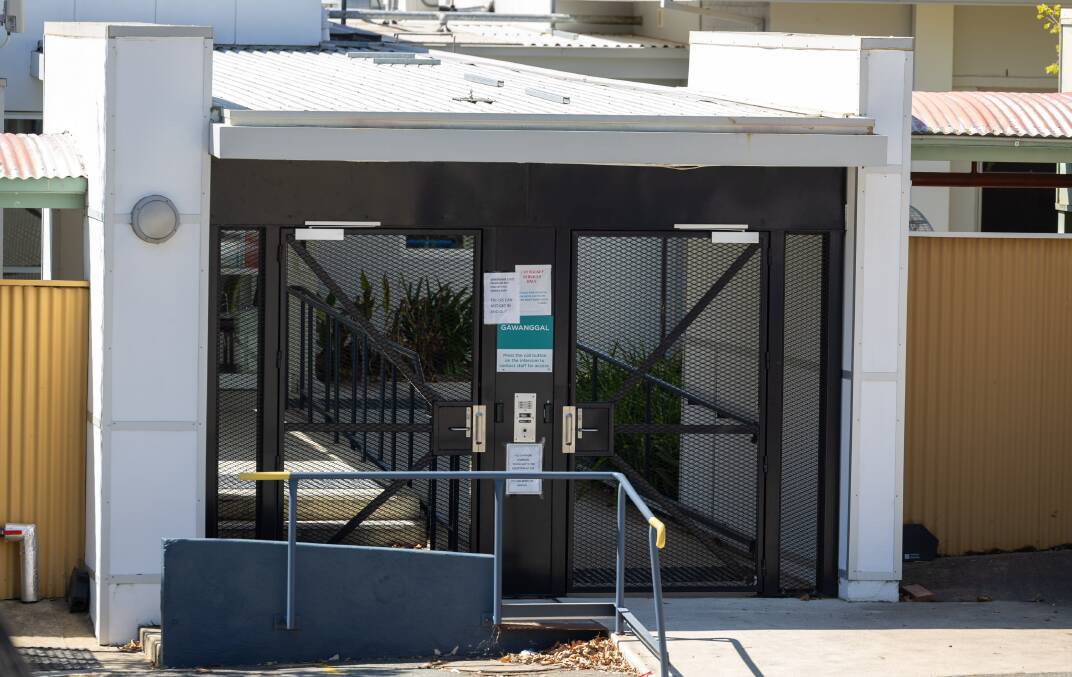The ACT's public advocate has significant concerns about people being inappropriately referred to the Dhulwa Mental Health Unit and is also concerned about complex leave policies.
The public advocate, Jodie Griffiths-Cook, was involved in "extensive" advocacy over the past year for individuals who were referred to the unit for reasons that were not mental health related, the ACT Human Rights Commission annual report said.
"During this reporting period, the [public advocate] continued to have significant concerns regarding some referrals for individuals proposed to be admitted to Dhulwa (arguably the most restrictive mental health unit in the ACT)," the report said.

"The [public advocate] undertook extensive advocacy throughout 2022-23 on behalf of some consumers where referrals did not appear to be required for mental health reasons or align with a least restrictive approach to treatment, care and support."
The report provided an example of a patient who was being considered for a transfer to a more restrictive mental health unit, this unit was not named in the report. The report said this "was possibly due to operational reasons rather than their mental health treatment needs".
The patient understood they were considering a transfer because there were not enough beds in their current facility. The advocate raised concerns about a lack of transparency around the move and what was shared with the patient.
"The PA raised these concerns with senior management and ultimately the person was placed in a less restrictive environment more appropriate to their needs, upholding their dignity and enabling them to continue their recovery journey," the report said.
Dhulwa is a forensic mental health unit for people who are involved or are likely to be involved in the criminal justice system. People who cannot be treated in a less restrictive environment can also be transferred to the facility.

There is also the Gawanggal Mental Health Unit which is a facility for people transitioning out of Dhulwa and back into the community.
The public advocate said over the year it continued to monitor concerns from patients at Dhulwa and Gawanggal regarding leave policies.
The annual report said there were concerns about the transparency of how leave decisions were made and the process did not always support a patient's recovery.
"Decisions made by the leave panel have limited transparency and the process for applying for leave is complex, thereby limited the making of timely decisions," the report said.
"The PA intervened on behalf of consumers when it appeared that the leave process was not promoting recovery."
Dhulwa and Gawanggal's leave policies have come under scrutiny with the board of inquiry into Dhulwa, held last year, finding there were concerns that approving leave for patients in the units was "unnecessarily prescriptive and, if strictly applied, could lead to unintended consequences and consumer frustration".

The leave policies have also been highlighted following an alleged stabbing at the Australian National University last month. Alex Leonard Ophel, 24, was arrested after allegedly stabbing two women. He was staying at Gawanggal and was on an unescorted walk when the alleged stabbing happened.
Mental Health Minister Emma Davidson has previously defended the leave practices of ACT mental health facilities. She said a lot of careful thinking goes into making a decision about whether someone is allowed to leave a mental health facility.
The public advocate noted there were also concerns about a "lack of information or progress towards discharge" at Dhulwa.
The public advocate also said there were "significantly fewer issues" around the quality of care from Dhulwa staff in the later part of the financial year.
Staff at Dhulwa are being investigated over an alleged breach of privacy after it emerged nurses at the facility had sent patient information to the Australian Nursing and Midwifery Federation.
- Support is available for those who may be distressed. Phone Lifeline 13 11 14; Men's Referral Service 1300 776 491; Kids Helpline 1800 551 800; beyondblue 1300 224 636; 1800-RESPECT 1800 737 732.







